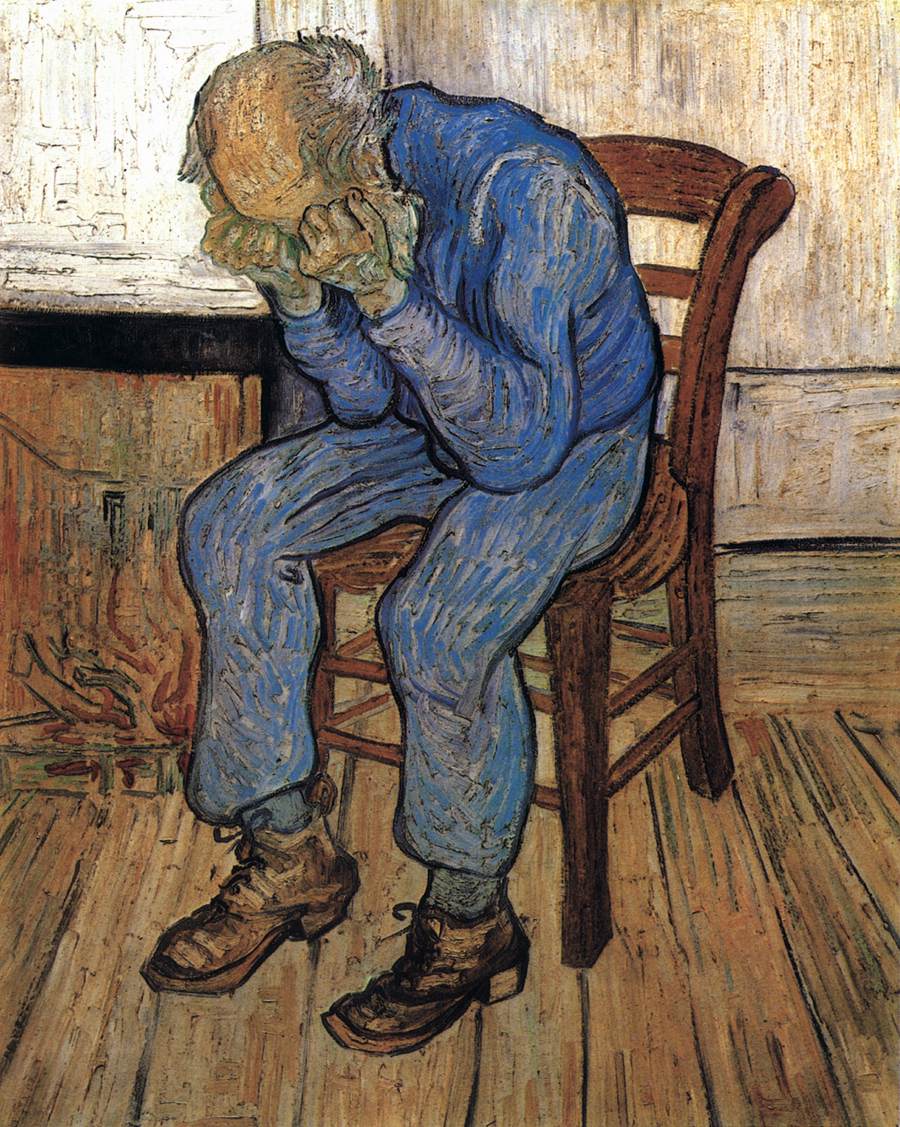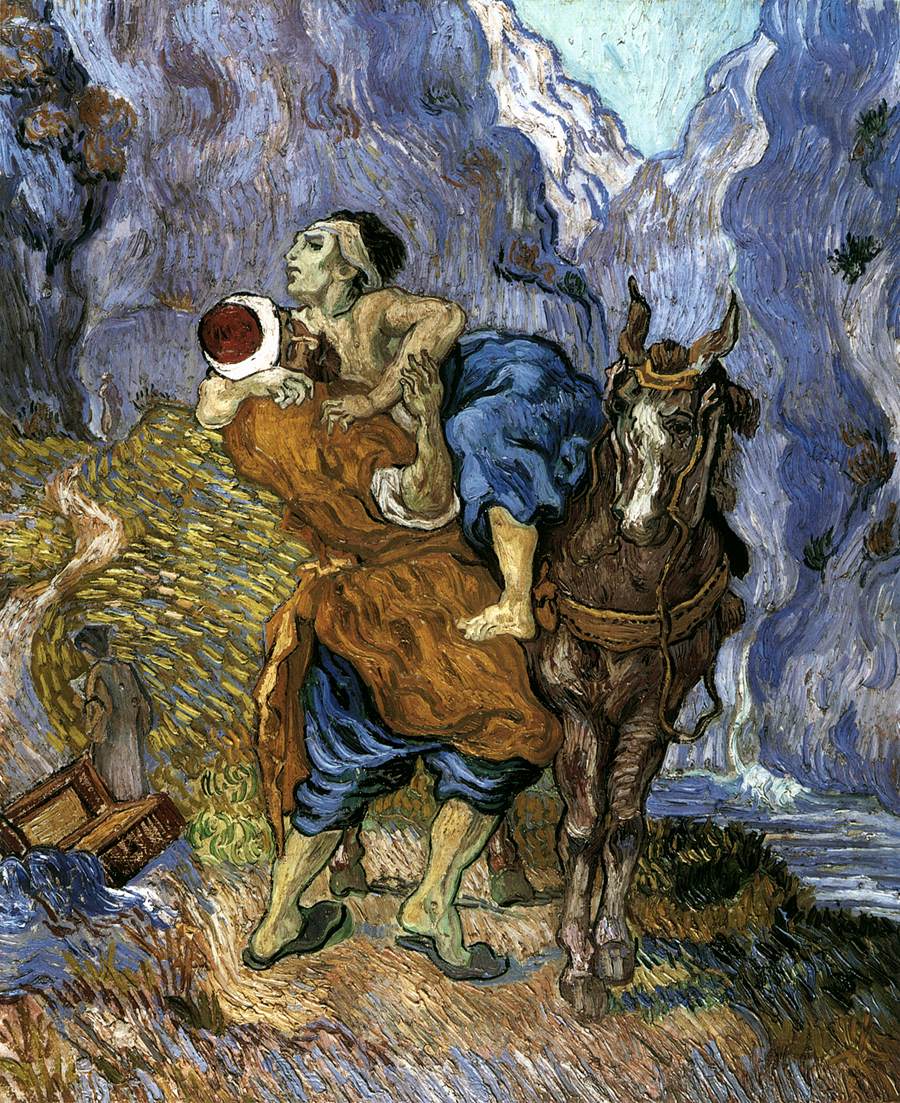Because of the alarming rate of suicide among our generation, we've been discussing in class how beautiful life is and what we can do if we encounter a friend having suicidal tendencies, and how to cope if we also feel depressed. I’m wondering too if any priests or religious experience suicidal tendencies or depression. If so, what provokes this?

Café Terrace on the Place du Forum, Arles, at Night, Van Gogh [ Web Gallery of Art ]
‘Yes! What a grace it is to have faith! If I had not any faith, I would have committed suicide without an instant’s hesitation.’ These were the words of a nun a week before she died aged 24, in 1897, from a very painful form of tuberculosis – St Thérèse of Lisieux.
Yes, some priests and religious experience depression or may have suicidal thoughts. By ‘depression’ I mean clinical depression, which is very different from an occasional experience of feeling down and annoyed with everyone. That is often due to something as simple as tiredness, which in turn may be caused by the way we mismanage our time and energy.
I have never experienced depression or suicidal thoughts but I have known people close to me who have. One was a Filipino religious sister who took her own life nearly thirty years ago. Those close to her were aware that she was going through a very difficult time and offered her lifelines but she didn’t grasp them.
In recent years in Ireland there have been four or five suicides by diocesan priests. In at least some cases there were no indicators to those around them that they were having suicidal thoughts.
But the question is really about suicide among young people and what to do. When I was a young priest studying in the USA a wise religious sister advised me that if I ever heard a person talking about the possibility of suicide I should take that person seriously. Her advice has helped me ever since. I know for sure that, with God’s grace, I enabled one young person – I’ll call her ‘Rose’ – in her 20s, whom I had known for a long time, to choose life after she had begun the process of a slow suicide by taking an overdose of a strong medicine prescribed for a serious illness she had. This was in the USA when I was on a visit there.
I have learned from experience that some persons of strong and active faith can be very ‘fragile’ emotionally. ‘Rose’ was such. What triggered off her suicide attempt was an expectation that she thought her mother was laying upon her even though she was living on her own at the time. When she asked me what expectations I had of her I said, ‘I don’t have any, only hopes.’ This was the turning point for her and she chose to live.
From experience I know that one very important element is being able to listen to another and to really hear what that person is saying, to show understanding and genuine care. Not everyone has the ability to listen in that way but we can show care and encourage a person close to us meet a professional psychiatrist, psychologist, counsellor, priest or someone that he or she knows to be mature, responsible, trustworthy and a good listener.
The Church has always taught that suicide is objectively a grave sin. (You will find the Church’s teaching in the Catechism of the Catholic Church, Nos 2280 – 2283). But in all the cases I am personally familiar with, the persons involved had been under great inner stress, sometimes unknown to those around them. At times the signs were clear, professional help was sought by the family/community and given but the person under stress still took the ultimate step. I truly believe that in many cases the person had no real inner freedom. I am certain that God has great mercy on them, as the Catechism No 2283 indicates.

Old Man in Sorrow, Van Gogh [ Web Gallery of Art ]
But suicide always devastates the family or community of a person. And we should never glorify suicide in any way, particularly when we are grieving for someone who has taken that ultimate step. We should rather entrust that person to God’s mercy.
Clinical depression does not always lead to suicidal thoughts and I have friends who have experienced it, a number of times in some cases, but have come through it. A painful incident may trigger off suicidal thoughts, as in the case of ‘Rose’, but it is like pain revealing an illness that has been growing silently and needs to be treated.
One of my favorite lines in the Bible is from Psalm 149: 4, ‘For the Lord takes delight in his people.’ Another is: ‘In this is love: not that we have loved God, but that he loved us and sent his Son as expiation for our sins’ (1 John 4:10). I see these two verses as beautiful expressions of God’s unconditional love for us. We cannot earn God’s love and should never try to do so. It is a gift.
We need to be aware of our own dignity, of being made in the image of God, and, if baptized, of being a son or daughter of God. As the priest pours a little water into the wine at the offertory of the Mass he says, ‘By the mystery of this water and wine may we come to share in the divinity of Christ who humbled himself to share in our humanity.’ Every human being is called ‘to share in the divinity of Christ’.
In the video below Jean Vanier, a former naval officer and professor of philosophy, who has shared most of his life with persons with mental/learning disabilities speaks of seeing God in others. What he says applies to each of us, especially when he speaks of ‘the primal cry: do love me . . . Why have I been abandoned? Does my life have any value?’ There is something of this in each of us but especially in those in deep emotional/mental distress. If we see signs of the latter in anyone we know we should try to gently invite that person to open up so that we can bring some hope into that person’s life.
Fr Ronald Rolheiser OMI, a Canadian Oblate priest, has written frequently about suicide and I have found his writings helpful. One example is here. If you google ‘Fr Ronald Rolheiser OMI, suicide’ you will find links to other articles on this topic.

The Good Samaritan (after Delacroix), Van Gogh [ Web Gallery of Art ]

